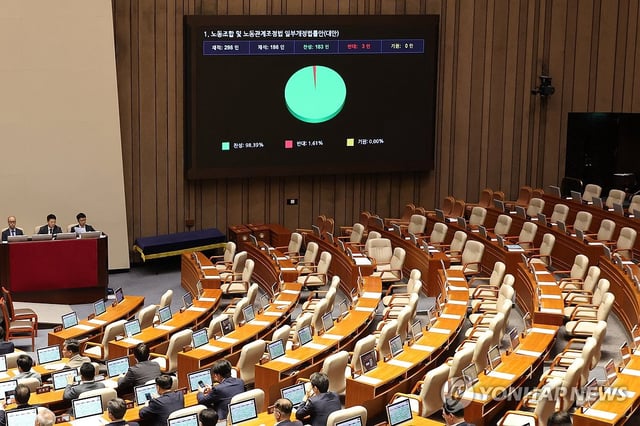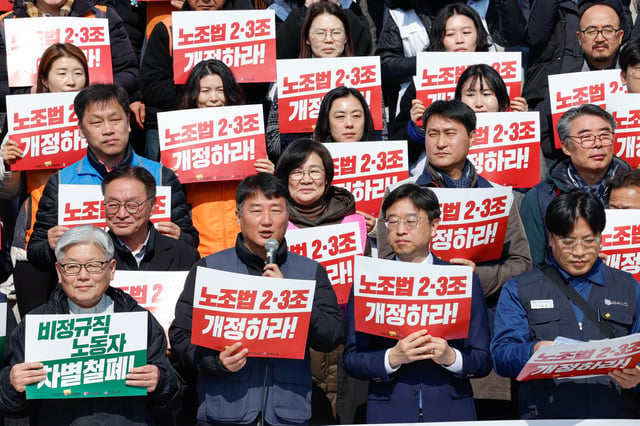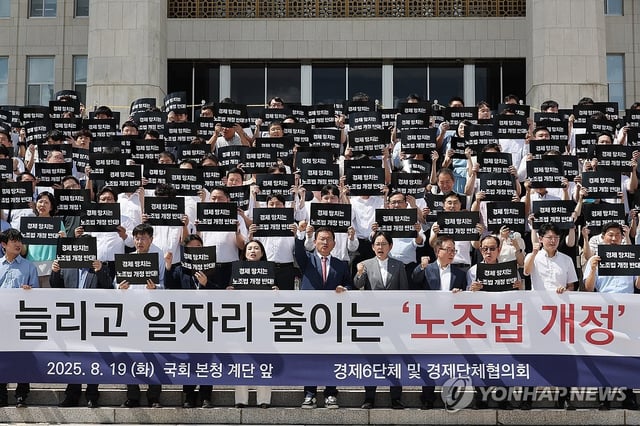Overview
- Lawmakers approved amendments to Articles 2 and 3 in a 183-3 plenary vote after ending an opposition filibuster, with the People Power Party boycotting the final vote.
- The law broadens who can be deemed an employer, grants bargaining rights to indirectly employed and subcontracted workers, and limits companies’ ability to seek damages over strike-related disruptions.
- It will take effect six months after promulgation, with officials signaling an effective date in early 2026 as detailed guidelines are prepared.
- The presidential office welcomed the passage and pledged to gather input from labor and business to ensure predictable implementation during the grace period.
- Major business lobbies and foreign investor groups warned of legal uncertainty and competitiveness risks, and GM Korea has reportedly warned it may reassess its operations as experts flag ambiguity around the 'substantial control' standard and bargaining representation.



